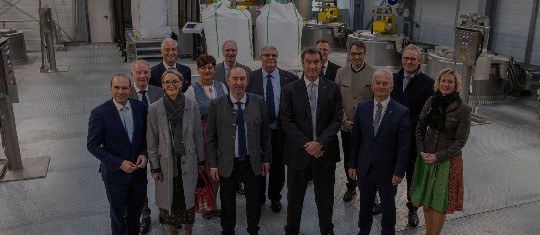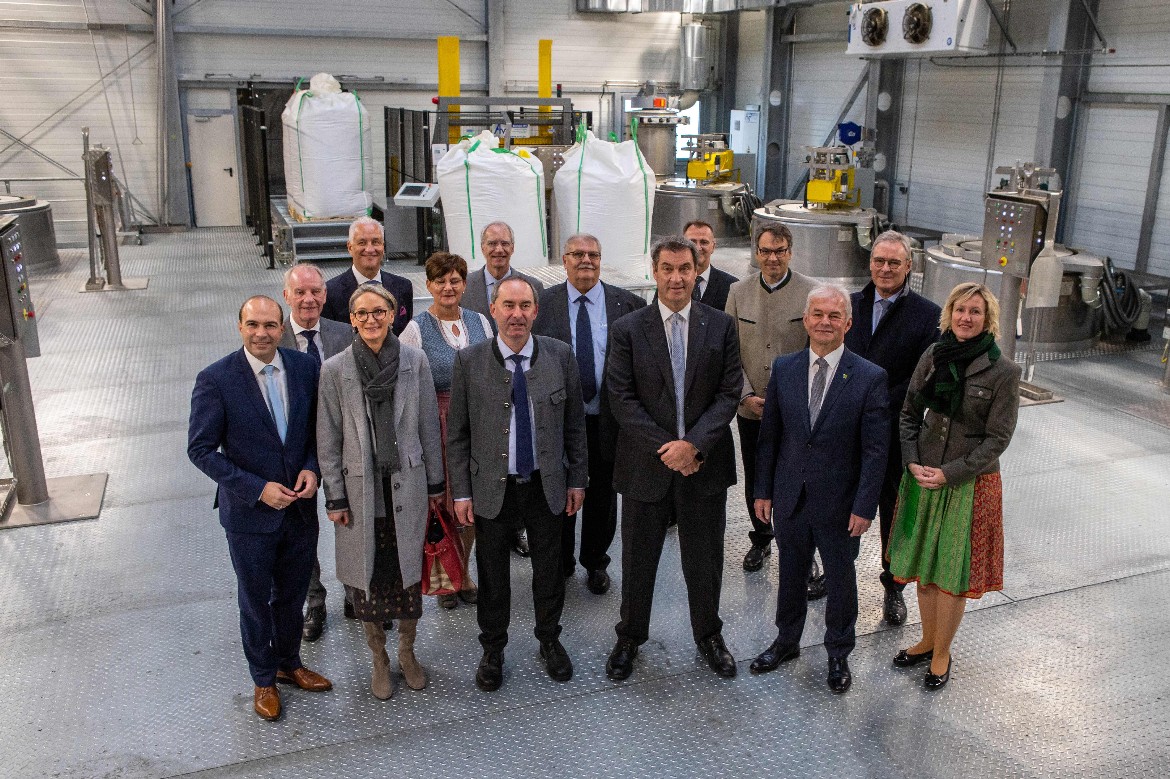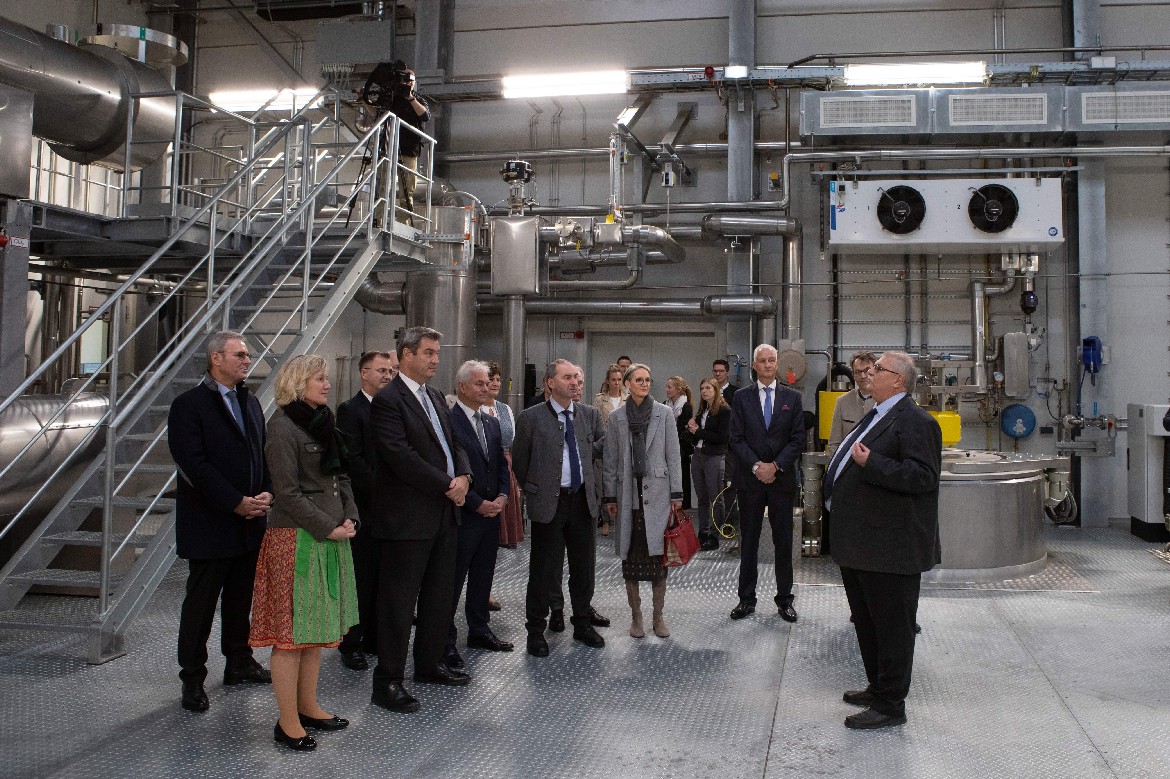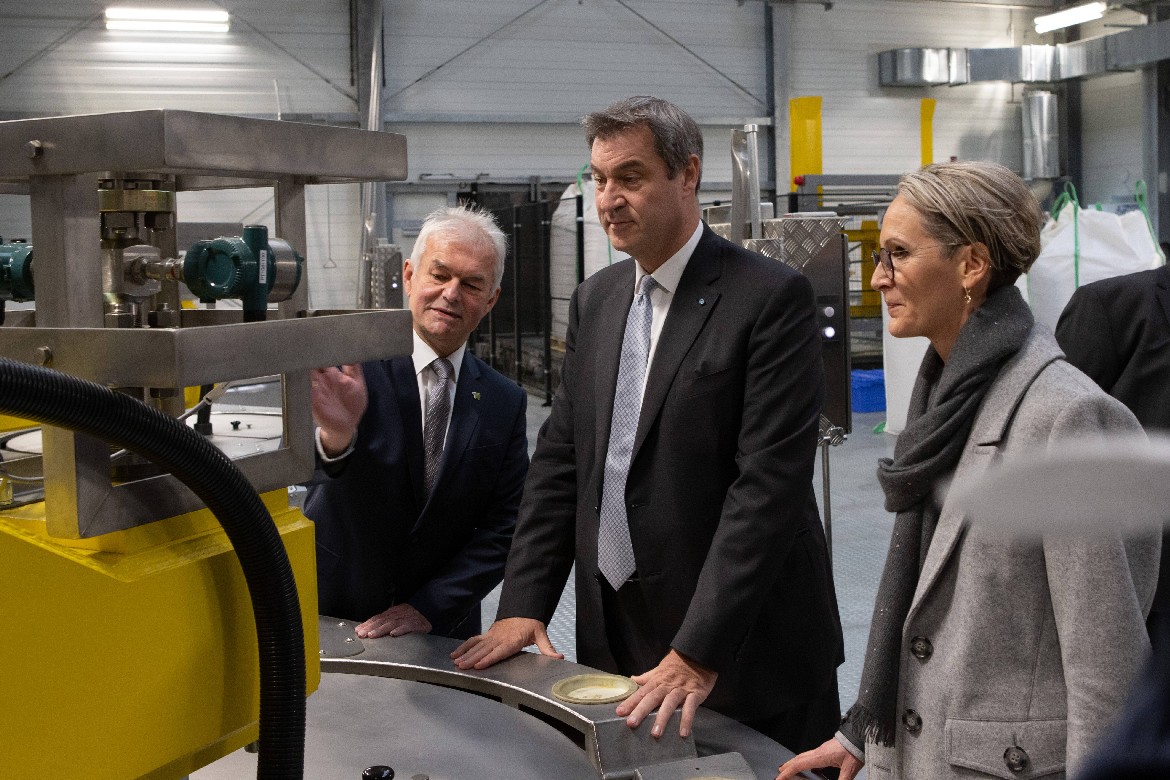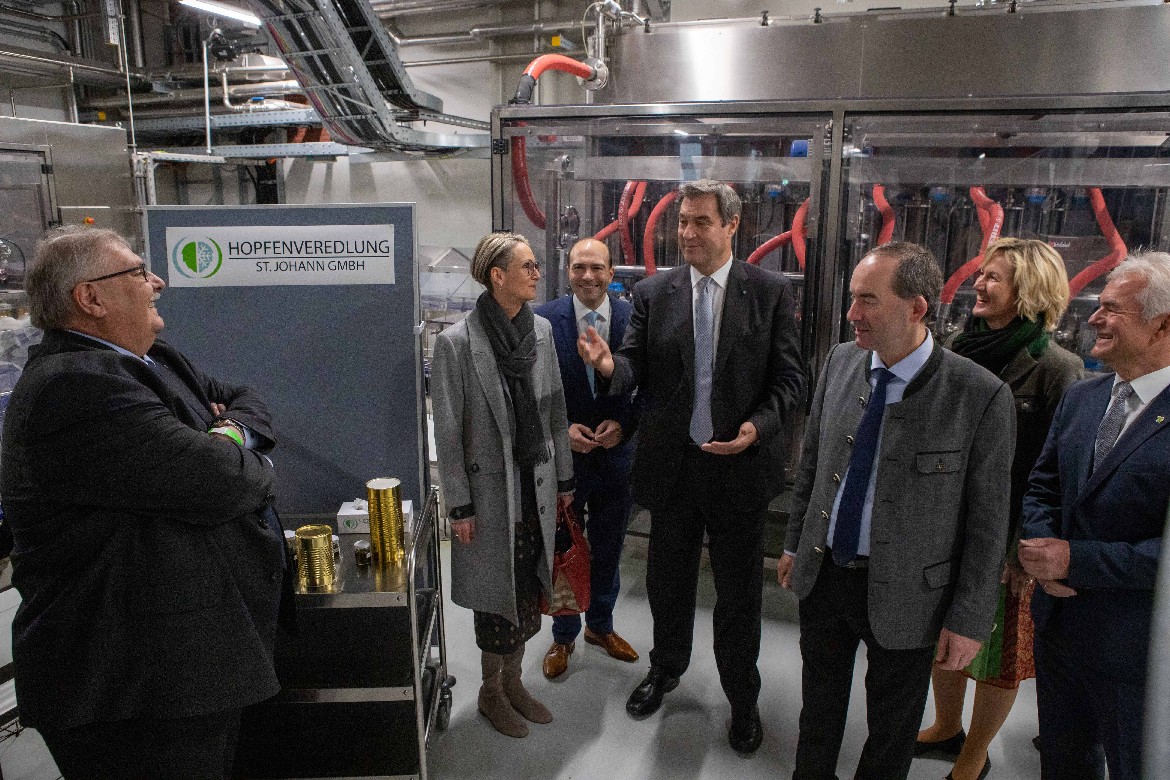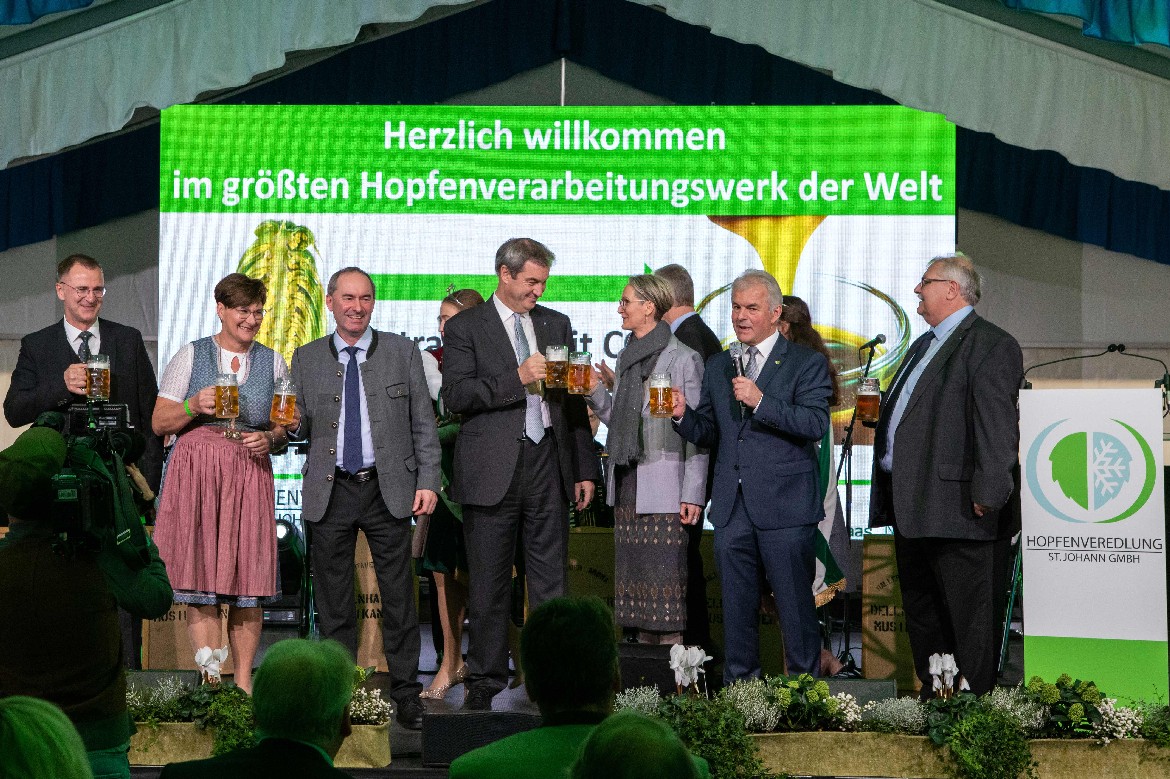With a ceremonial act, BarthHaas and the HVG Hop Processing Cooperative open the new extraction plant in St. Johann. In addition to the Minister President of the Free State of Bavaria, Dr. Markus Söder, the Deputy Minister President and Bavarian Minister of Economic Affairs, Hubert Aiwanger, the invited guests include numerous other guests from politics and business as well as the plant's employees.
St. Johann, October 31, 2022 The newly built CO2 extraction plant at the St. Johann hop processing plant, the world's largest hop processing plant, was already commissioned in September 2020; however, due to the pandemic, the celebrations to mark the opening of the new plant had to be postponed for the time being. Today's ceremony is not only intended to celebrate the commissioning of the plant, in which around 65 million euros have been invested in planning, construction and equipment, but also to thank in particular the 190 or so employees of the St. Johann plant, who represent the core and heart of Hop Refining St. Johann.
Each season, the plant in St. Johann processes around 33,000t of raw hops (60 varieties from 16 growing regions) into pellets and concentrated hop extract - equivalent to around 26% of the world's harvest. Worldwide, the extraction plant in St. Johann supplies breweries in 100 countries. In addition to the new extraction plant, the St. Johann hop refinery has a total of eleven hectares of factory premises with storage capacities for up to 11,000 tons of raw hops, 23,500 tons of finished product, cold storage facilities, and in particular a modern laboratory and its own research brewery.
High-performance extraction plant
The high-performance CO2 extraction plant of Hopfenveredlung St. Johann, which went into operation in the fall of 2020, processes around 33% of the plant's capacity. The advantages of the purely physical process of CO2 extraction are obvious: the hop extract obtained by the extraction process is a pure natural product without chemical additives, which, along with hop pellets, is the main use of hops in breweries. With up to 3-fold concentration, the hop extract requires around 25% less storage volume and not only has a longer shelf life, but is also easier to dose at the same time.
The gentle and environmentally friendly CO2 extraction process has been used successfully at the St. Johann plant since the mid-1980s and has replaced the original production process using alcohol and hot water. During the extraction process, CO2, a natural extraction agent, is compressed to 500 bar and placed in a supercritical state (a mixture of liquid and gaseous), as its dissolving properties are best in this form. Poured into the extraction vessels, the CO2 dissolves the brewing-relevant ingredients (bitter substances, aromatic substances) from the previously pelletized hops in an oxygen-free and antibacterial atmosphere. After extraction, the hop spent grain remains, which can be further processed into animal feed. A condenser then liquefies the CO2 and returns the recovered solvent to the extraction circuit.
Sustainable processing methods
Sustainability is a top priority at the new extraction plant. The biogenic carbon dioxide used in the application releases only as much CO2 as was previously removed from the atmosphere by the plants for bio-ethanol production through photosynthesis. The plant's own combined heat and power plant supplies the extraction process with heat and electricity in an energy-efficient manner. Any additional electricity required is covered 100% by green electricity from Germany. Further planned site and energy concepts also set the course for sustainable, innovative corporate development.
The "Hopfenveredlung St. Johann GmbH" - a high-performance joint venture with know-how
The joint venture Hopfenveredlung St. Johann GmbH incl. the brand name NATECO2 (one of the pioneers in extraction with supercritical CO2) belonging to the plant is jointly operated by BarthHaas GmbH & Co. KG and HVG Hopfenverwertungsgenossenschaft e.G.
Photo Credit: Hopfenveredlung St. Johann GmbH

